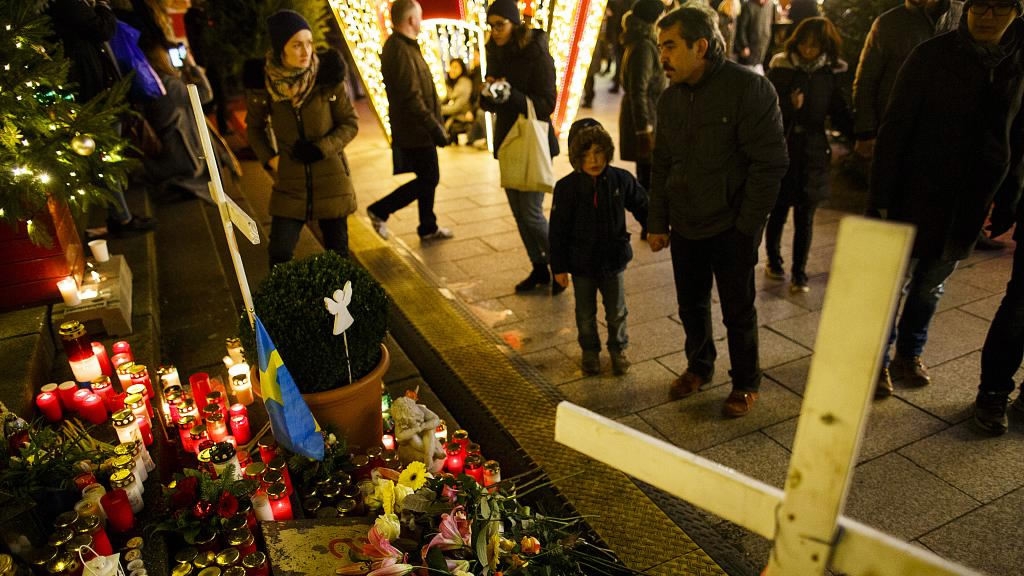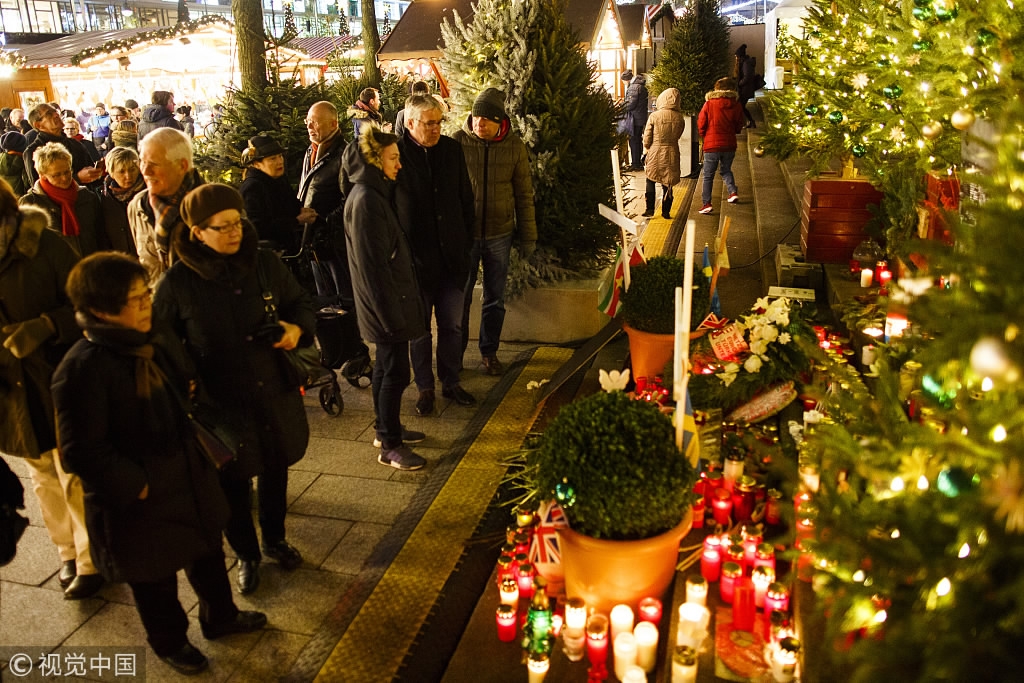
Opinions
15:55, 19-Dec-2017
Opinion: How safe is Germany?- Uncertainties remain one year after the Berlin Christmas market attack
Guest commentary by Siegfried O. Wolf

On Dec. 19, 2016, Germany experienced a major terrorist attack on its own soil for the first time.
The attacker Anis Amri, a young Tunisian refugee, deliberately drove a truck into the bustling Christmas market at Breitscheid square, a popular spot amid a shopping district in Berlin.
The traumatic incident killed 12 people and left dozens injured, some of them heavily. The fact that the terrorist swore allegiance towards the Islamic State in Iraq and the Levant (ISIL) and its leader Abu Bakr al-Baghdadi clearly signaled to Germany’s politicians and the public that the global terror trail had arrived in their country.
This notion was until then largely downplayed by the German government and conveniently ignored by the public. This is surprising, since it is obvious that the Christmas market attack is not a single incident but rather a part of a new wave of Islamist terror. Besides some failed attempts, the Breitschuld square incident came on the heels of several attacks like the ax attack aboard a train near Würzburg and a suicide attack at a festival in Ansbach.

Visitors at the Christmas market at Breitscheidplatz on December 17, 2017 in Berlin, Germany. /VCG Photo
Visitors at the Christmas market at Breitscheidplatz on December 17, 2017 in Berlin, Germany. /VCG Photo
Despite numerous reports that Germany is increasingly in the focus of the Global Jihadist movement promulgated by organizations such as IS and other sympathizers, it seems that the security forces and Berlin officials were ill-prepared to avoid such an attack as well as deal with its aftermath. This has raised numerous questions.
First of all, was the Berlin attack preventable, and how safe is Germany in the future? Concretely, how ready and willing are the country’s authorities to face the Jihadist threat? Taking into account that Mr Amri was a failed asylum seeker and a petty criminal, using numerous different identities, and was known to about 45 German and other European law enforcing agencies, these inconsistencies is making the puzzle even more complex.
Furthermore, it is difficult to understand that despite earlier signs of radicalization and informing an intelligence operative that he wanted to conduct a terror attack in Germany, he was still able to slip through the cracks of immigration and security, especially intelligence, authorities. Berlin officials admitted that Mr Amri as a potential terror suspect had been monitored for quite some time during 2016, but surveillance was called off about two months before the attack took place.

Visitors pause at a memorial to victims of the 2016 Christmas market terror attack at Breitscheidplatz on December 17, 2017 in Berlin, Germany. /VCG Photo
Visitors pause at a memorial to victims of the 2016 Christmas market terror attack at Breitscheidplatz on December 17, 2017 in Berlin, Germany. /VCG Photo
Second, what is the impact of the Berlin attack and similar ones in the rest of Europe on Germany’s political decision makers and society? Which lessons are German politicians drawing from this terrible incident? In this context, it is crucial to mention that the rise of Jihadi terror in Germany coincides with the worrisome growth of the extremely radicalized local Salafist community and the massive influx of illegal migrants and refugees originating from Muslim majority countries as well as the re-appearance of right-wing populism, foremost represented by the AfD (Alternative for Germany), a relatively newly founded political party.
The latter is a surprising phenomenon, since unlike several of its neighbors, Germany is traditionally quite resilient toward right-wing sensationalism due to its historical burden and strong countervailing forces, the foremost of which is the media.
However, the refugee crisis and the way the German government dealt with it combined with unfortunate events -- like the large scaled sexual assaults in Cologne at the New Year's Eve 2015-2016 conducted by refugees -- plays into the hand of the right-wing propagandists.
Subsequently, any fruitful and constructive debate over the impacts of migrations has not taken place. The taboo of publicly debating potential links between the increase of the migration of refugees and the growth of Jihadi terror turns out to be a roadblock for understanding the complexity of the terror problem.
However, it has become clearer that German authorities are growing more aware of another new phenomenon. A trajectory marking especially the French-Belgium type of Jihadism which is now hitting Germany too since last year: namely, the increasing nexus between crime and terror. Many of the perpetrators of the Nizza, Paris, or Brussels attacks as well as Anis Amri have a criminal background and were radicalized in European prisons by fanatic Islamists.
Germany reacted by trying to beef up its security apparatus for several years, but due to constitutional political bottlenecks, political sensitivities regarding concerns of privacy and personal freedoms, and decisions on and implementation of numerous security measures got either delayed or put on hold.
Nevertheless, despite heated debates, the government decided to place greater weight on public safety concerns vis-à-vis privacy rights and approved a series of broadened security measures, like video surveillance technologies or body cams for police. Also, some improvements in cooperation between the state agencies have taken shape.
But the fact that some agencies involved tried to manipulate the documented files on Anis Amri case to camouflage mistakes and fault-lines paints a rather grim picture regarding the efficiency of potential reforms.
Finally, the result of the latest national elections, the tremendous votes gains of the AfD combined with the frustrating processes in forming a new coalition government can be interpreted that significant sections of German politicians are still not willing to realize the severity of the Jihadist challenge and able to act in a responsible manner.
(The author is Director of Research at the South Asia Democratic Forum (SADF), a Brussels-based think tank in Brussels (Belgium) and Senior Researcher (member), South Asia Institute (SAI), Heidelberg University, Heidelberg (Germany). The article reflects the author’s opinion, and not necessarily the views of CGTN.)

SITEMAP
Copyright © 2018 CGTN. Beijing ICP prepared NO.16065310-3
Copyright © 2018 CGTN. Beijing ICP prepared NO.16065310-3